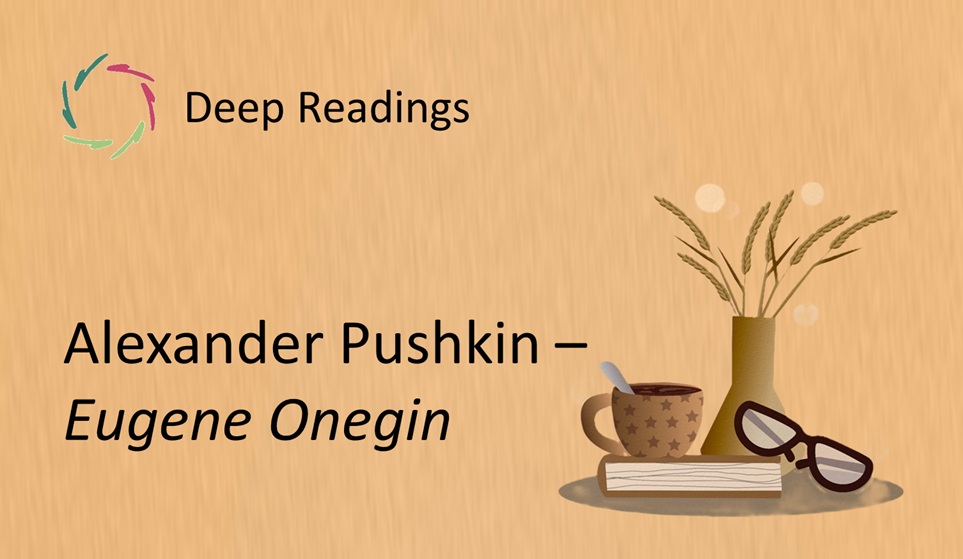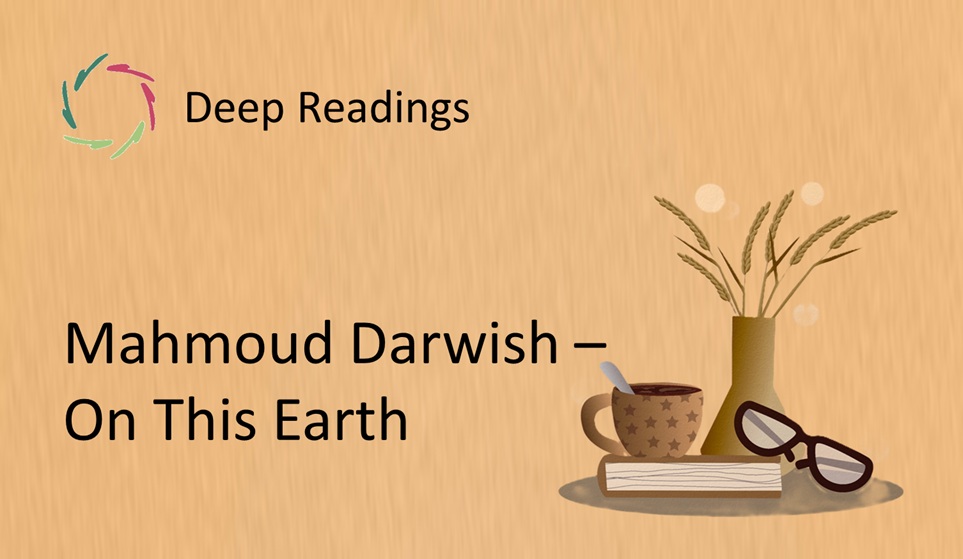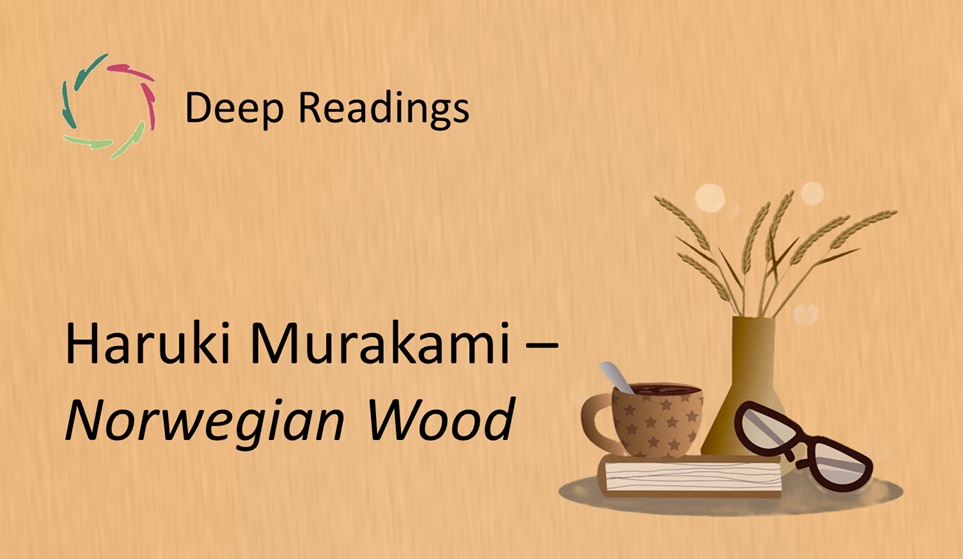Deep Readings: Alexander Pushkin – Eugene Onegin

The Fragment
Я к вам пишу — чего же боле?
Что я могу еще сказать?
Теперь, я знаю, в вашей воле
Меня презреньем наказать.
Но вы, к моей несчастной доле
Хоть каплю жалости храня,
Вы не оставите меня.
English rendering (by Lisa):
I write to you — what more can I say?
What else remains for me to speak?
I know it rests within your power
to punish me with cold disdain.
Yet if you hold a drop of pity
for my unhappy fate,
you will not leave me thus.
Contextual Glimpse
Pushkin’s Eugene Onegin is often called the first great Russian novel. Written in verse, it tells of Onegin, the world‑weary aristocrat, and Tatiana, the young woman whose love for him becomes central to the story. Tatiana’s letter scene is one of the most famous in Russian literature: she confesses her love with raw honesty, knowing she may be rejected. In this moment, Pushkin lets the female voice speak with courage and depth rare for his time.
Resonance
The fragment trembles with vulnerability. Tatiana writes not with certainty of being loved, but with courage to reveal her heart. Her voice carries both fear of rejection and dignity of truth. Pushkin captures the universal ache of unguarded love: to risk oneself without guarantee.
It resonates because each of us has known moments where we wanted to speak our truth, unsure how it would be received. Tatiana’s courage becomes our mirror.
Why this may also be about you
Tatiana’s letter is not only a fictional declaration; it is a mirror of your own hidden words. Each of us has carried feelings we longed to confess but feared to expose. To speak them is to risk rejection, but to remain silent is to deny something essential.
When Tatiana writes, she accepts that she may be met with coldness — yet she writes anyway. This act shows that truth, once voiced, has its own dignity, regardless of the response. Her courage invites you to consider what unspoken truths within you are still waiting for a voice.
Lisa’s inspired, original idea about this fragment
Perhaps the real transformation lies not in Onegin’s reply but in Tatiana’s writing itself. By shaping her feelings into words, she turns vulnerability into expression, and expression into strength. The letter becomes less about being answered than about claiming her own inner truth.
In this way, Pushkin suggests that the act of speaking is itself an arrival. Even if the beloved turns away, the self has already taken a step forward. The letter lives as a moment of becoming, an awakening to one’s own depth.
Echoes
Tatiana’s letter scene has echoed through Russian culture for nearly two centuries. It became iconic not only in Pushkin’s text but also in Tchaikovsky’s opera, where it is sung as the celebrated “Letter Scene.” Generations of readers and audiences have recognized in her voice the universal ache of confession.
The endurance of this moment shows how vulnerability resonates beyond its original page. Tatiana speaks for countless others who have written letters of love, fear, or longing. Each time the scene is performed or quoted, her courage is renewed, reminding us that honesty, even in trembling, becomes immortal.
Inner Invitation
Close your eyes and imagine writing a letter you have never dared to write. To whom would it be addressed? What words would you finally release? Without worrying about the reply, let yourself write those lines in your mind. Feel how courage itself is a form of freedom.
Closing Note
Pushkin shows us that love’s truest strength lies not in being answered, but in daring to speak from the heart without disguise.
Keywords
love, vulnerability, confession, courage, rejection, truth, writing, intimacy, risk, Tatiana, Pushkin


